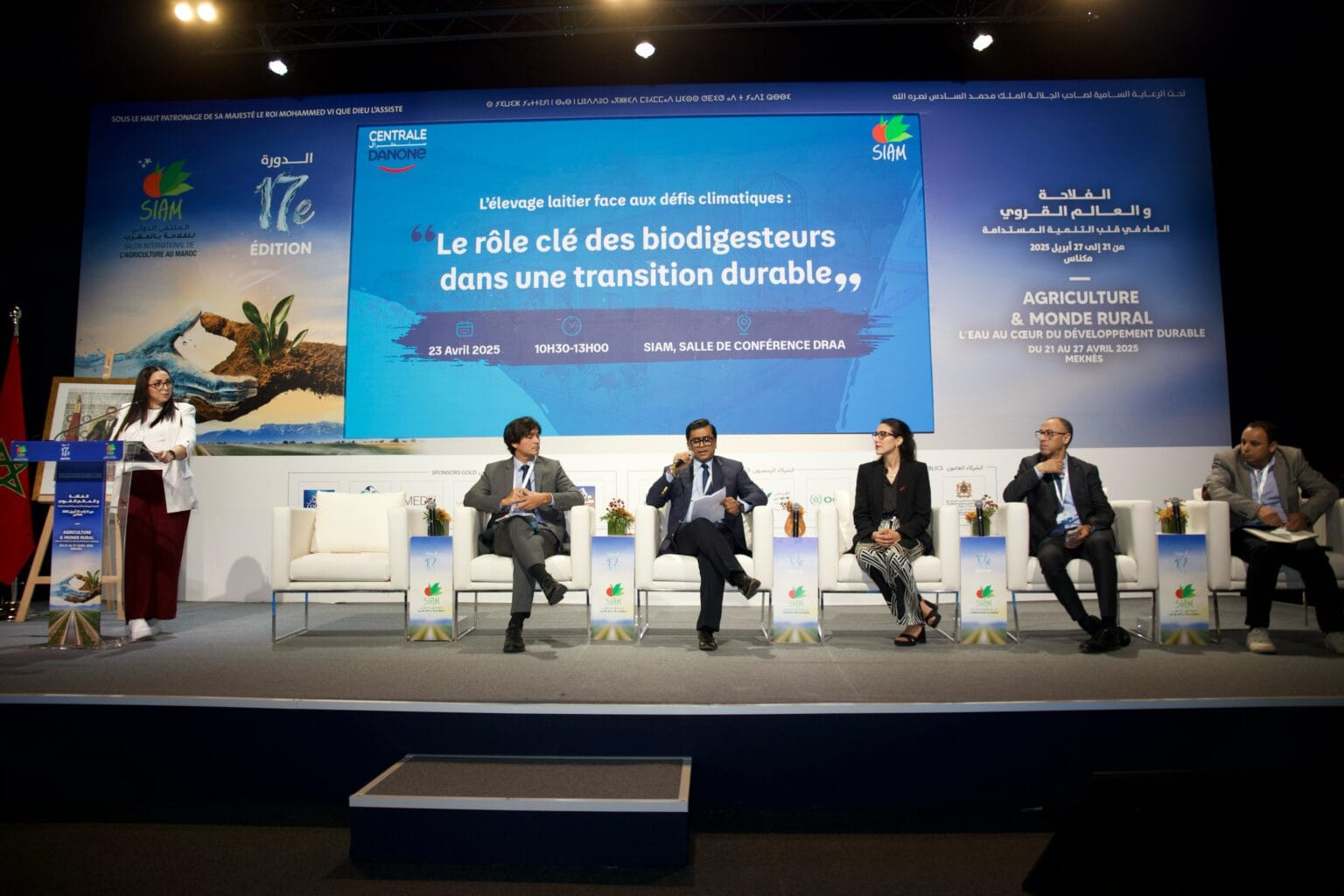During the 17th edition of the International Agricultural Show in Morocco (SIAM), Centrale Danone announced a strategic partnership with Sistema.bio, a global leader in biodigestion solutions for small farmers.
This initiative marks a turning point in the deployment of an innovative technology with a significant environmental and social impact. It fully aligns with the theme of this edition of SIAM: “Water at the heart of sustainable development,” by providing sustainable solutions that address several challenges, including the preservation of water resources.
A concrete solution to agricultural and climate challenges
The partnership plans to install 4,000 biodigesters across the Kingdom between 2025 and 2030, with a budget of 70 million dirhams for this period. These units will transform livestock waste into renewable biogas and organic fertilizer, allowing for reduced production costs, decreased dependence on chemical fertilizers, and lower greenhouse gas emissions. By 2030, the carbon footprint of the milk collected by Centrale Danone is expected to decrease by 20% compared to 2024, notably due to the reduction of gas emissions related to manure.
The use of these biodigesters will also help limit the risks of soil and groundwater pollution while improving soil structure through the natural fertilizer produced, thus promoting better irrigation water efficiency.
A Moroccan project at the heart of a global strategy
This partnership is part of a global agreement between the Danone Group and Sistema.bio, which plans to install 6,500 biodigesters in several countries by 2030. Morocco, a pioneer in this initiative, occupies a strategic position in the deployment of this technology, thus contributing to sustainable agricultural innovation in Africa.
This project is fully integrated into the Danone Impact Journey roadmap, which aims for regenerative and resilient agriculture. It also supports Danone’s commitments regarding climate and methane emission reduction. Furthermore, it is perfectly aligned with the national program Hlib Bladi, co-created by Centrale Danone and GIZ, which aims to strengthen Morocco’s dairy sovereignty and support farmers towards more sustainable practices.
Centrale Danone is also committed across its entire value chain to preserve water, optimizing its consumption in its industrial units, recycling cleaning water, training farmers in responsible agricultural practices, and improving its processes to reduce the water footprint of its products.
A sustainable and circular agricultural model
Hervé Orama Barrère, CEO of Centrale Danone, stated: “We are particularly proud to see Morocco play a leading role in this global ambition for agricultural innovation driven by the Danone Group. This partnership with Sistema.bio reflects our commitment to act concretely in favor of more sustainable and resilient agriculture. Morocco thus becomes a true hub in Africa and the region to advance the agriculture of tomorrow.”
For his part, Alexander Eaton, CEO and Co-Founder of Sistema.bio, added: “Thanks to this collaboration and the exemplary commitment of Centrale Danone, Sistema.bio will support thousands of farmers in transforming their organic waste into clean energy and natural fertilizer. This initiative will enhance agricultural performance while accelerating the transition to cleaner energy. We are proud to be part of this collective effort.”
The partnership between Centrale Danone and Sistema.bio represents a key step in implementing the environmental commitments of the Danone Group, highlighting Morocco’s role as a leader in the sustainable transformation of agriculture in Africa. This project also addresses an urgent challenge: the management of water resources in a context of increasing water stress, placing the preservation of water at the heart of agricultural priorities.


